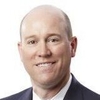Utility-Related Injuries and Fatalities: Navigating Complex Regulations and Unique Rules of Liability
Public vs. Investor-Owned Entities; Burdens of Proof; Defenses; Discovery; Insurance, Co-defendants, and Indemnity

Welcome! Strafford is now BARBRI! The expert courses you know from the trusted global leader in legal education.
Course Details
- smart_display Format
On-Demand
- signal_cellular_alt Difficulty Level
Intermediate
- work Practice Area
Personal Injury and Med Mal
- event Date
Wednesday, October 4, 2023
- schedule Time
1:00 p.m. ET./10:00 a.m. PT
- timer Program Length
90 minutes
-
This 90-minute webinar is eligible in most states for 1.5 CLE credits.
-
Live Online
On Demand
This CLE course will guide counsel through pursuing or defending serious and catastrophic personal injury and property damage claims involving utilities. The program will explore commonly encountered fact patterns and allegations; special pleading, notice, service requirements; co-defendants and indemnity; problems in discovery; limits on damages; and more.
Faculty

Mr. Byrne is a trial lawyer who concentrates his practice in tort and commercial litigation. With first chair trial experience in multiple state and federal jurisdictions, He leads litigation teams to successfully defend catastrophic personal injury, wrongful death, and business claims. Mr. Byrne represents national restaurant chains, gas and electric utility companies, product manufacturers, motor carriers, insurers, and other local, regional, and national companies.

After nearly seven years of doing insurance defense work for corporate clients at one of the big Philadelphia law firms, Mr. Kwass joined Saltz Mongeluzzi to become a plaintiffs’ personal injury lawyer.
Description
Each year thousands of personal injury, wrongful death, and property damage claims are brought against utilities as individual lawsuits or class actions. Utilities include suppliers of electricity, telecommunications, natural gas, cable tv, sewer, and water. Many incidents occur at construction or power plant sites and involve electrocution injuries. In addition to negligence, counsel may not be aware of other unique areas of liability.
Claims can arise from motor vehicle collisions, excavation, faulty installation, negligent failure to maintain equipment, downed wires, and sometimes even criminal negligence. Personal injuries include shocks, burns, catastrophic fires or floods, death, severe physical injury, and massive property damage. Because utilities often "lend" their crews to other utilities, for example, in restoration efforts, it may be difficult to identify all the potential defendants.
Proving that the utility company is liable for damages requires understanding the complex state, federal, and other regulations that govern operations. Certain, but not all, duties are nondelegable. The utility may have some level of immunity for certain claims, depending on whether the utility is public or private. There may also be special pleading or timing requirements.
Listen as this experienced panel discusses bringing suit and recovering for injuries by utilities.
Outline
- Types of utilities
- Types of incidents and injuries
- Theories of liability
- Co-defendants and indemnity
- Problems in discovery
- Limits on damages
- Special issues and defenses
- Multi-employer worksites
- Employee misconduct
- Affirmative defenses
Benefits
The panel will review these and other key issues:
- Do utilities enjoy special defenses or immunities, and how can defense counsel use them effectively?
- What special discovery problems must be overcome by the plaintiff?
- Do contributory negligence defenses apply?
- What are the standards for maintenance and repair for different types of utilities?
- How has the PG&E guilty plea in California impacted how utilities defend themselves?
Unlimited access to premium CLE courses:
- Annual access
- Available live and on-demand
- Best for attorneys and legal professionals
Unlimited access to premium CPE courses.:
- Annual access
- Available live and on-demand
- Best for CPAs and tax professionals
Unlimited access to premium CLE, CPE, Professional Skills and Practice-Ready courses.:
- Annual access
- Available live and on-demand
- Best for legal, accounting, and tax professionals
Unlimited access to Professional Skills and Practice-Ready courses:
- Annual access
- Available on-demand
- Best for new attorneys
Related Courses

Motor Vehicle and Premises Liability Complexities Resulting From Low-Light Conditions
Thursday, October 9, 2025
1:00 p.m. ET./10:00 a.m. PT

Personal Injury Juries: Overcoming Politics and Conspiracy Theories
Available On-Demand
Recommended Resources
Making Continuing Education Work for You, Anytime, Anywhere
- Learning & Development
- Career Advancement
Getting the Most Out of BARBRI Resources
- Learning & Development
- Business & Professional Skills
- Talent Development